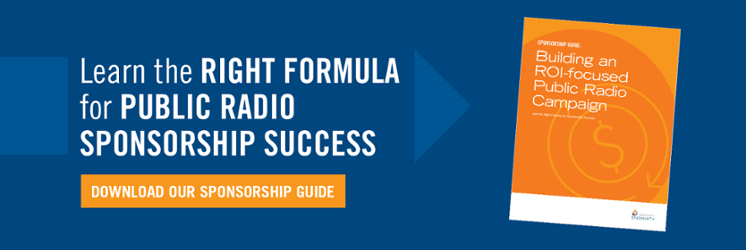The Difference the Halo Effect Makes in Gaining New Customers

Consumers are influenced by brands they feel good about. When a business or product has gained a following among shoppers or is associated with a worthy cause, it creates an aura that others want to align themselves with. This halo effect is one of the keys to generating new business.
What Is the Halo Effect?
With reference to an angel's halo, the halo effect is the tendency for a good impression to positively influence an opinion in other areas. In marketing, it signifies the good association enjoyed by brands that people like or those that rally around a social issue.
For example, an attractive storefront will draw people in who are curious about the business. If the contents and customer service measure up to the initial impression, those who enjoy the experience will tell their friends about it. Even those who never shop there may look upon the brand as favorable if it is connected to good service or a worthy cause.
Trader Joe's Supermarket is a good illustration of this. The first sentence of the company's mission statement vows to bring the best quality products to its customers. Vendors who get their products on Trader Joe's shelves fall under the umbrella of top quality providers. If it is sold at Trader Joe's, by virtue of the halo effect, it must be good.
What Are the Benefits of the Halo Effect in Marketing?
In marketing, the halo effect strengthens a brand's image and reputation. It also increases brand loyalty. Marketers use it to align the brand with causes that resonate with the target audience.
If shoppers have a good experience with a brand, they cognitively form a brand loyalty bias toward that company. This reasoning stems from the idea that if the business does one thing right, it must be good at other things. This assumption can take the brand far and help in attracting new customers.
When a business supports a cause that is important to the community, the public takes notice. Brands that care about the same things they feel are important are seen in a favorable light when it comes time to spend money. A brand that successfully makes use of the halo effect will connect itself to positive media such as public radio to reap the benefits.
How Does the Halo Effect Influence Public Radio Listeners?
Public radio is seen as a thought leader to an affluent, educated audience that is highly engaged. Regular listeners associate public radio with a lifestyle they aspire to and encourage others to tune in, as well.
Sponsorship on public radio allows your brand to positively anchor its own reputation to that of the station and capitalize on borrowed influence. Listeners of public radio, in turn, are highly influential. 40% who hear a sponsorship message are likely to recommend a product, company, or service to their friends and family.
When you sponsor public radio, you can connect with more prospects in a clutter-free environment. Because sponsorship guidelines specify clear, to-the-point messaging that is not overly promotional, listeners receive compelling communication that they will not only listen to, but often act upon.
Due to the halo effect of advertising on public radio, program sponsors get to tap into an attentive and responsive audience.
Take Advantage of the Halo Effect to Gain New Customers on Public Radio
The public radio audience trusts the platform. They also pay attention and tend to respond to marketing messages. As a result of the halo effect, 46% of public radio listeners admit being likely to trust a brand they learn about while engaging with NPR.
Public radio is also focused on the community and reaches a larger audience than ever before because of its community-centric programming. When you sponsor public radio, your message is likely to be heard by an engaged audience who cares about local issues and who has some influence among their peers. Your brand is also in a good position to earn new customers.
Whether you’re interested in sponsoring one of our public media stations or learning more about turnkey sponsorship representation for your station, we can help. Complete the form, and we’ll be in touch soon.
Subscribe
Every week we share insights, industry news or best practices on public media sponsorship. Receive a weekly digest of our latest blog posts so you’re always in the know.
